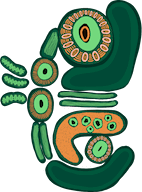This year Dental Health Week takes place from the 5th to the 11th of August, focusing on the importance of taking steps to care for your teeth and gum health.
Most of us know how important it is to take care of our teeth. However, it’s just as important to be aware of and care for the structures which surround and support them. Gums play a vital role as they safeguard the ligaments and bones that secure our teeth in place. Even though they’re not visible, without healthy gums, our teeth lack a stable foundation, leading to potential tooth loss. This underscores why gum disease remains a significant contributor to dental issues.
“Gum disease, or periodontitis is the most common non-infectious disease in the world affecting approximately 743 million people globally. It is a disease that doesn’t usually cause pain or have any clear symptoms until patients have lost so much bone and gum that their teeth start wobbling in their mouths and in some cases they even fall out! It is for these reasons that getting your dentist, therapist or hygienist to check your gums during your regular exam is so critical. Regular checks will make sure any changes are picked up early enough that you don’t risk having your teeth fall out because of advanced gum disease.” Dr Troy McGowan – Periodontist
What is gum disease?
Gum disease, also known as periodontitis, affects millions of people worldwide and stems from bacteria residing in dental plaque. Gum disease starts as red, swollen and inflamed gums (gingivitis) which in susceptible patients can eventually develop into periodontitis.
1 in 4 Australians have gum disease also known as periodontitis*.
But I brush my teeth every day, how could I develop gum disease?
Although everyone has bacteria in their mouth not everyone develops gum disease. This is because in certain individuals, the body’s immune response can become overly reactive, leading to inflammation, swelling, and eventual irreversible gum and bone damage. This heightened sensitivity to dental plaque is known as susceptibility to periodontal disease and is why it is so important to have your gums checked regularly by an oral health professional.
Some people brush and floss twice a day and still get gum disease because of how reactive their gums are to the presence of bacteria. Other patients might brush once a day and floss every other day and never have any gum issues (but will likely have other tooth problems like decay). This susceptibility to gum disease can change with age, stress and other lifestyle factors and it is this variability that makes having a regular exam to check for gum disease so important.
There are five health conditions linked to our gums.
Inflammation of the gums can affect inflammation in other parts of the body and can affect conditions such as:
- Heart Disease- There is strong evidence linking severe gum disease and heart diseases due to oral bacteria entering the bloodstream and an overall increase in the body’s inflammation.
- Diabetes- There is a two-way relationship between gum disease and diabetes. Diabetes can increase an individual’s risk of developing severe gum disease, just as gum disease may negatively affect blood sugar levels.
- Alzheimer’s Disease- There are early links suggesting that severe gum disease (Periodontitis) may contribute to Alzheimer’s disease and cognitive decline due to oral bacteria and an overall increase in inflammation.
- Adverse Pregnancy Outcomes- There is evidence of an association between severe gum disease and adverse pregnancy outcomes such as low pre-term birth weights. This is thought to occur due to an overall increase in inflammation and gum disease bacteria traveling from the mouth to the placenta.
- Inflammatory Bowel Disease – There is early evidence indicating a link between severe gum disease and inflammatory bowel diseases.
6 things you can do to look after your gums.
There are a few things you can do to care for your gums, most of them centred around the removal of plaque:
- Focus on brushing where gums and teeth meet– angle the brush at 45° to clean beneath the gum line thoroughly.
- Use a soft-bristled toothbrush or an electric oscillating head toothbrush – these will clean your teeth more efficiently and effectively.
- Use a fluoride toothpaste– this will help protect your tooth enamel.
- Replace your toothbrush regularly- worn bristles don’t clean as well, leaving more plaque behind and increasing the risk of your body over-reacting to the bacterial load.
- Clean between your teeth with floss and/or interdental brushes- this will help to remove food and bacteria from nearly half the surface area of your teeth where brushing can’t reach.
- Keep an eye out for any bleeding gums while you are brushing and flossing- bleeding gums or blood in your saliva after brushing or flossing may indicate early gingivitis or periodontitis. Rough fillings or tartar buildup under the gums can worsen gingivitis and it will usually only get worse unless you have a dentist, oral health therapist or hygienist address the actual cause of the issue.
If it’s been more than 6 months since you last saw a dentist for a check-up, prioritise your oral health by scheduling an appointment today. Book an appointment and ensure your teeth and gums are receiving the care they deserve.
